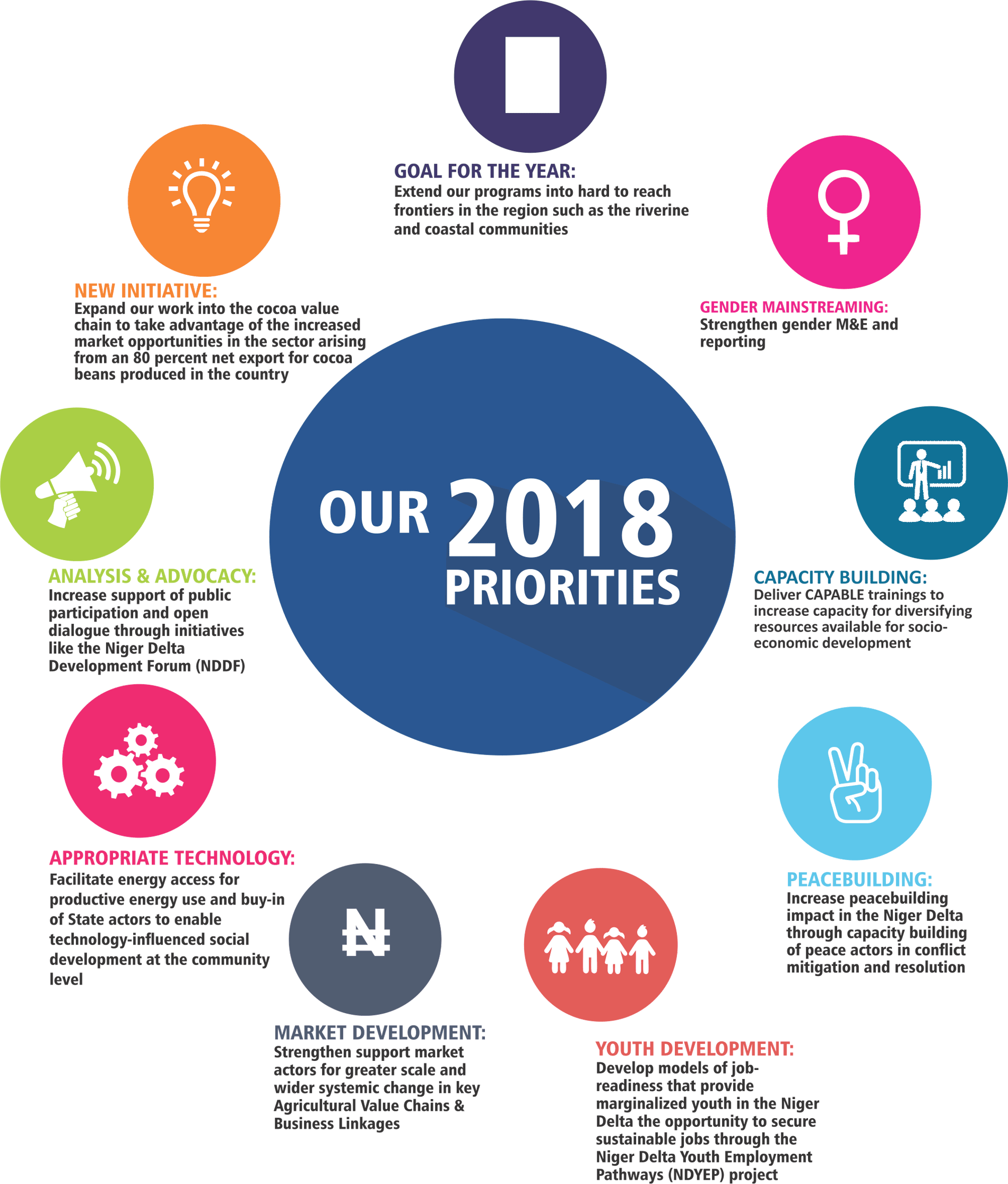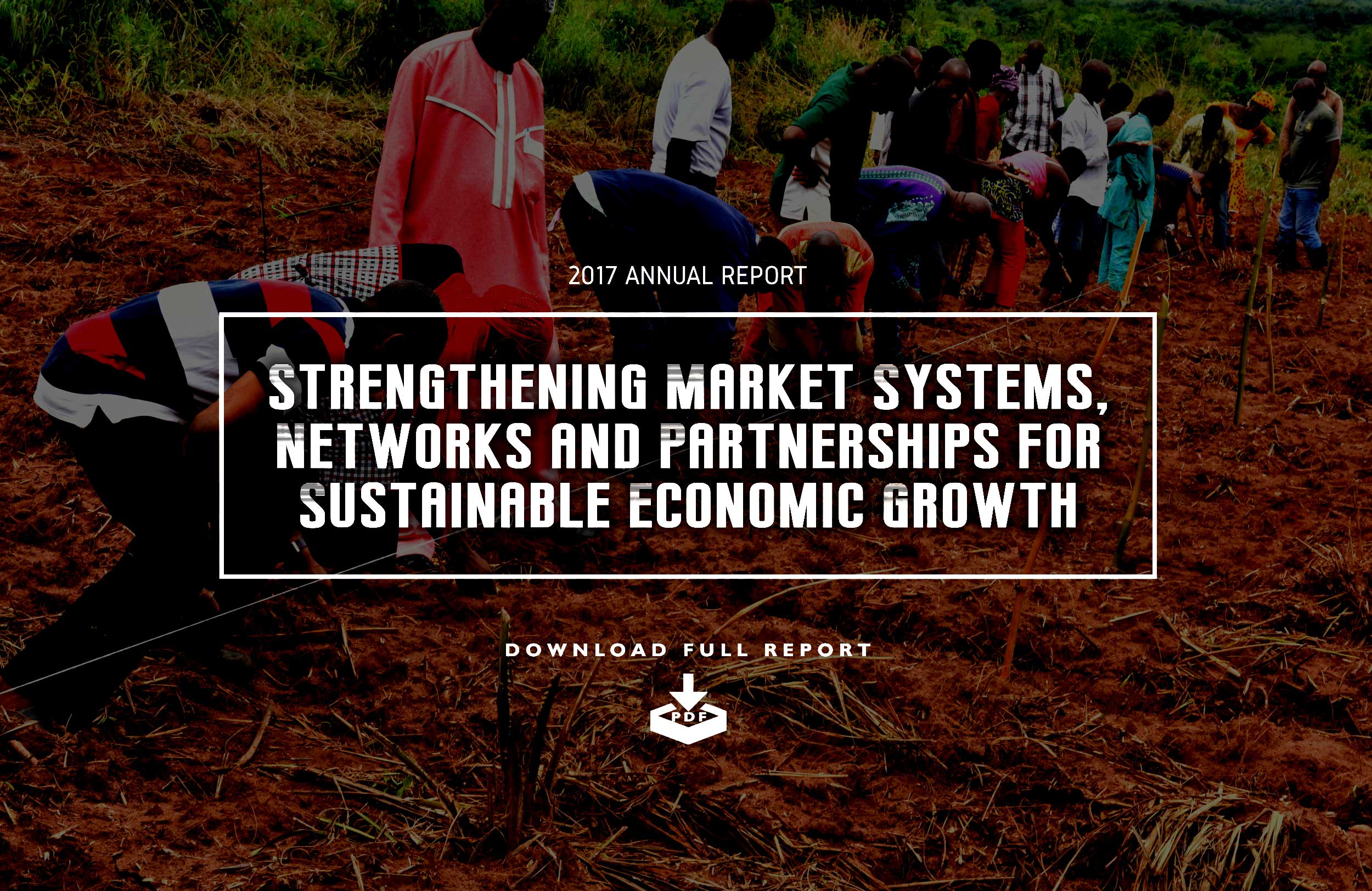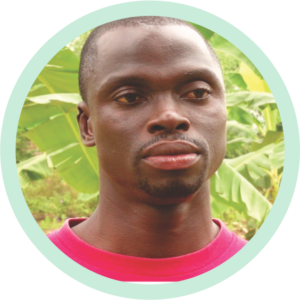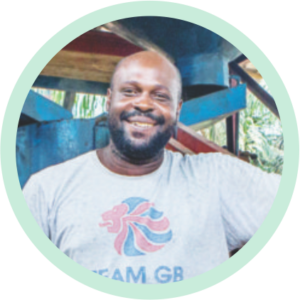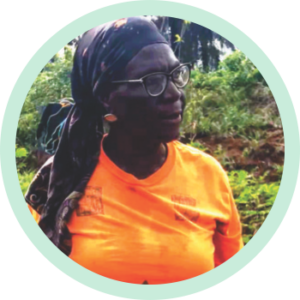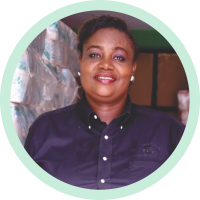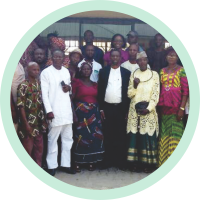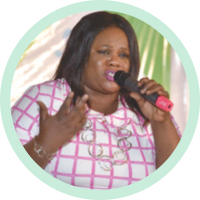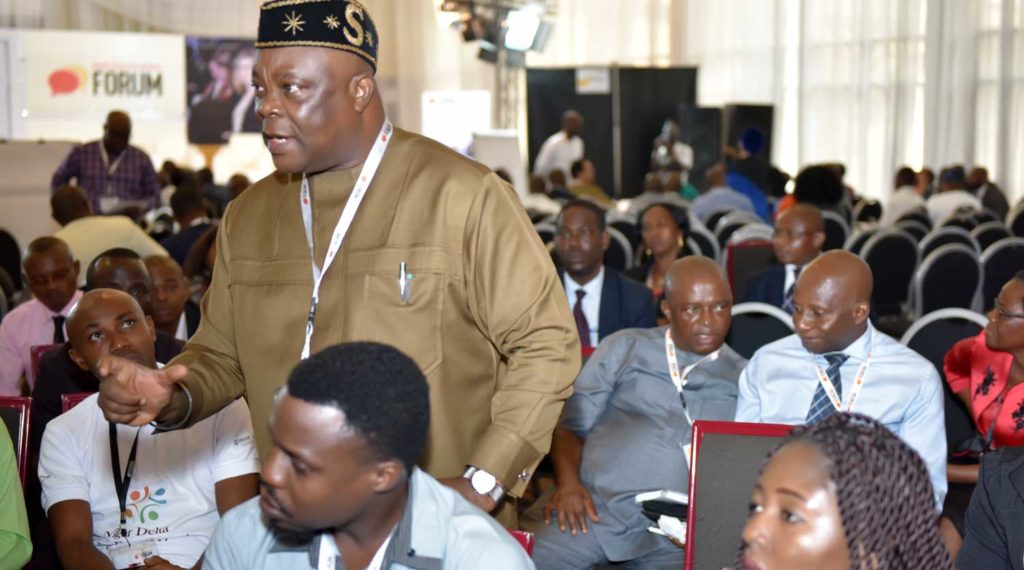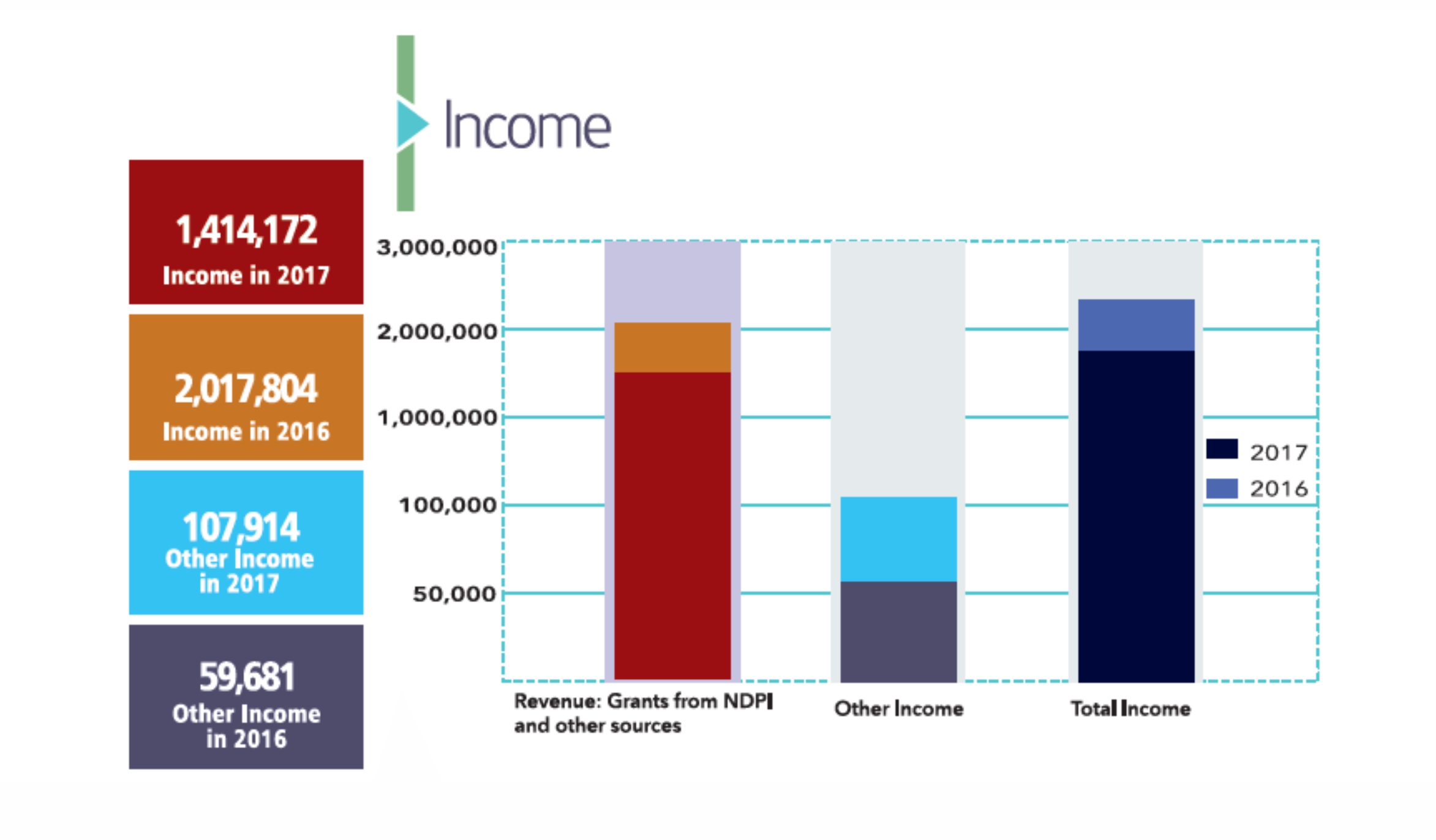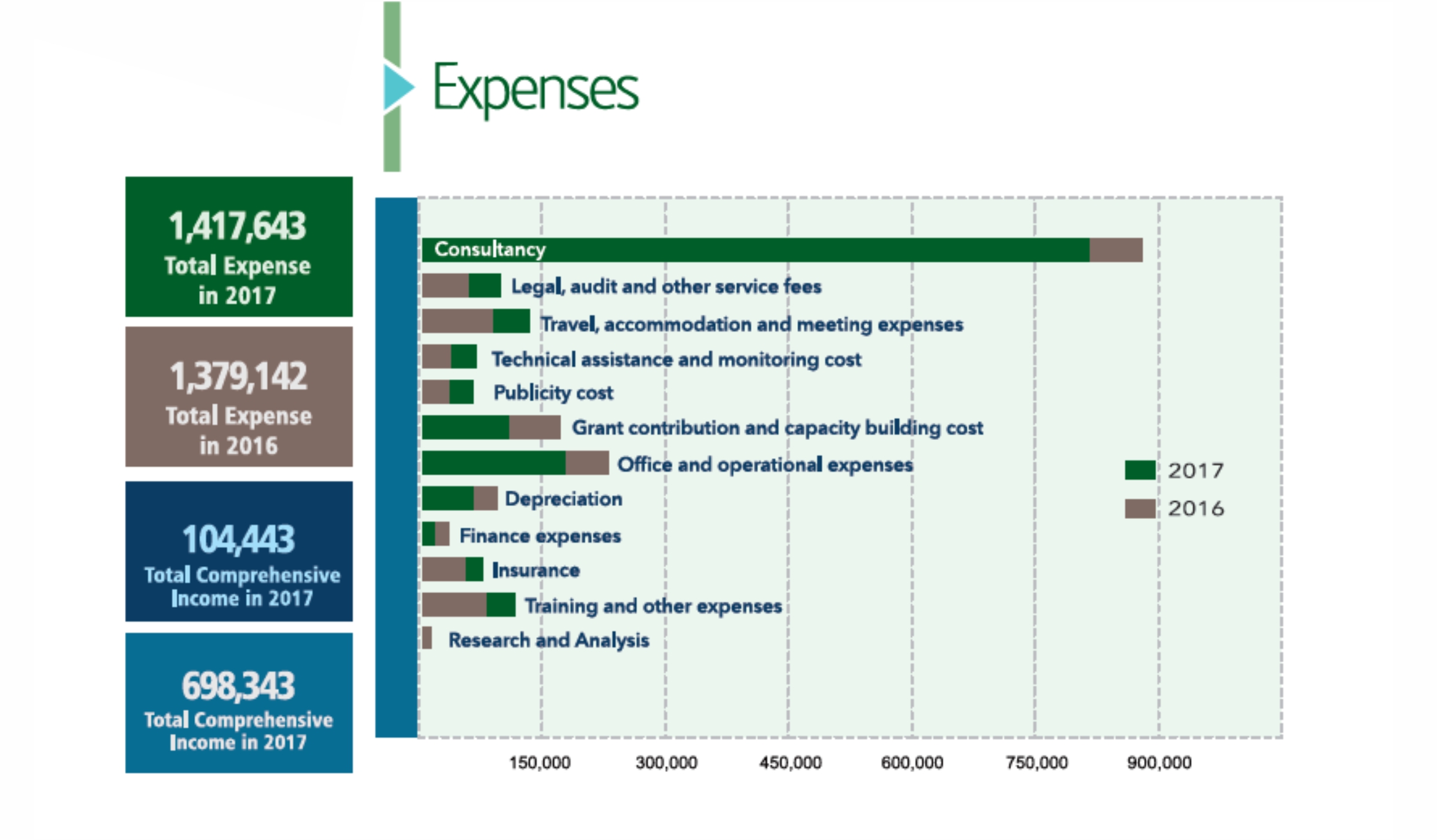PIND is a Nigerian non-profit organization established by Chevron to build partnerships and equitable economic development in the Niger Delta.
We hope to achieve a legacy of sustainable peace and development among communities in the region
The Foundation holds strongly to the core values of partnership and collaboration, learning and innovation, stewardship, integrity and sustainability
Our strategic priorities centre on the four interrelated and interdependent programs: Economic Development, Peacebuilding, Capacity Building and Analysis and Advocacy.
PIND’s project interventions span across all the nine (9) States of the Niger Delta:
Abia, Akwa Ibom, Bayelsa, Cross River, Delta, Edo, Imo, Ondo and Rivers.
Extensive knowledge of the Niger Delta
Strong expertise in the market-led development approach
Access to diverse market, peace and development actors
Expertise in the Network Development approach to peacebuilding
Robust data resources for evidence-based investments
Strong convening power
Vast network of partners
Footprint in the hard to reach frontiers of the region
Skilled and committed workforce
Early Warning & Early Response Infrastructure
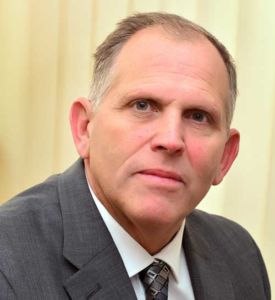
and catalyzing an eco-system of diverse stakeholders that
working together, independent of us, can create and sustain
peaceful livelihoods – while making sure that the benefits
spread equitably to both men and women.’’
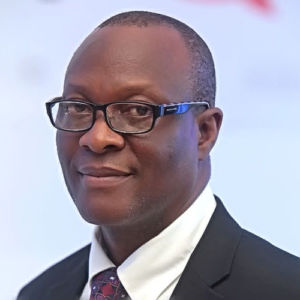
‘’ We stimulated a more vibrant support market for our supported agricultural value chains and small enterprises, strengthened and expanded our facilitated regional peace infrastructure, working groups, clubs, and ICT-based early warning system and peace map. We increased capacity and outreach of organizations indigenous to the region, actively enabled better-informed governments to achieve regional development, and supported platforms for development discourse and collective action.’’
Here is a look at PIND’s key programs and projects performance for the year
ECONOMIC DEVELOPMENT
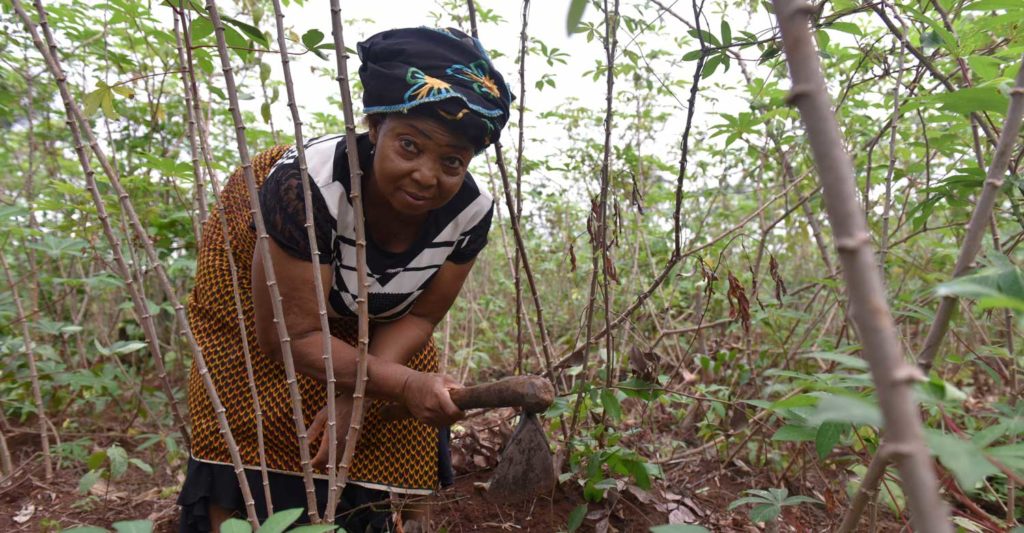
THIS PROGRAM IS GROWING BUSINESSES, BOOSTING PRODUCTIVITY AND PROFITS FOR SMALL-HOLDER FARMERS AND SMES IN THE REGION. IT DOES THIS BY USING THE MAKING MARKETS WORK FOR THE POOR (M4P) APPROACH, WHICH FOCUSES ON DEVELOPING MARKET SYSTEMS.
The private market actors (agro-input, agro-dealers, fabricators and agro-service providers) PIND catalysts are leading the scale up of interventions to more locations across the region, independent of the Foundation – they are sustaining and spreading the benefits beyond PIND (sustainability).

AQUACULTURE
Our Pool of Aquaculture Service Providers Improved Fish Farmers’ Agronomic & Business Practices and the Fabricators and Service Providers we Facilitated Expanded Markets for Efficient Fish Smoking Technologies
The improvements in fish farming practices and efficiencies brought about by the activities of the Aquaculture Service Providers and the input companies led to the creation of 930 new full time equivalent (FTE) jobs within the year, bringing the total jobs we created in the sector to over 2,000 full time equivalent (FTE) jobs.
They also had a huge impact on the profitability of fish farmers as 707 of them netted additional net income of N187, 167,366 (this was N63, 799,157 for 18,050 farmers in 2016).
With this, 4,317 fish farmers representing 55.7 percentage of the total 7,742 fish farmers (2,323 females, 5,419 males) we reached from 2010 – 2017, have made a combined net additional income of 380 Million
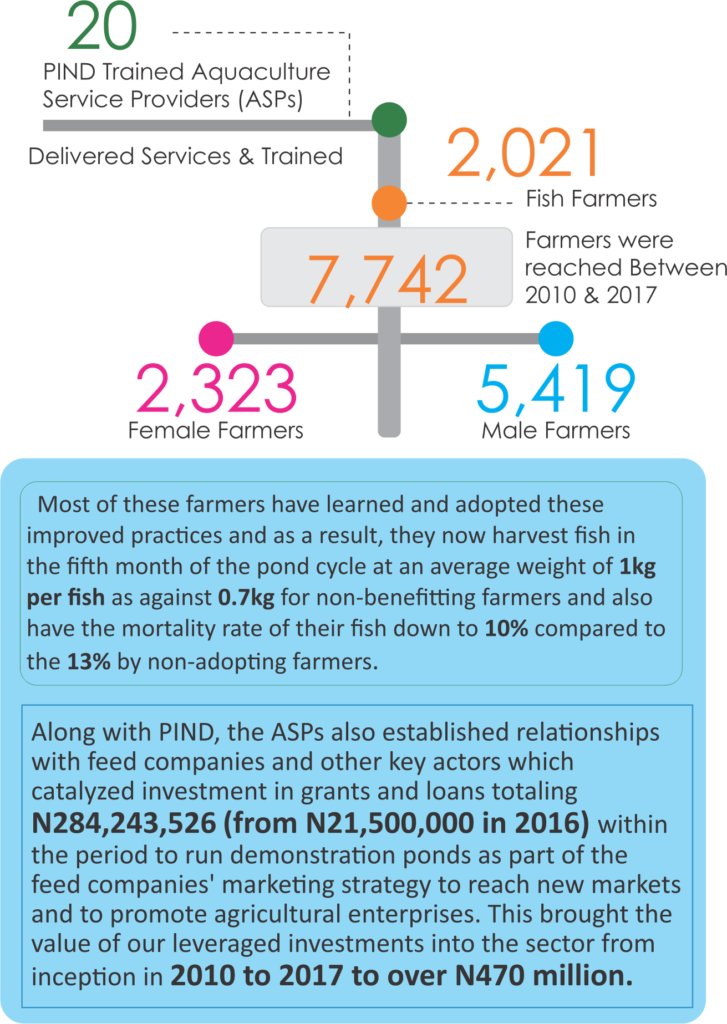
PALM OIL
Supported Agro Equipment Dealers and Fabricators Improved Palm Oil Harvesting and Processing Efficiencies
Using a combination of engagements, market demonstrations and value propositions, we attracted 20 agro dealers who expanded their product offerings by investing in the sale and servicing of the harvesting technologies and trained 37 local fabricators who currently make a living from manufacturing and selling the improved processing machine to processors and millers – and they do this without PIND’s involvement as it has become a business for them. Through their work,
- 74 Small Scale Processing Equipment, and 212 palm fruit harvesters have been sold and are in use across all the States of the Niger Delta.
- Palm oil processors who adopted the use of the small scale improved processing technology increased their weekly gross profit to N484,667.97 compared to the N255,760.00 earned by their counterparts using the manual press processor, a difference of N228,907.97. This means the adopters increased their weekly income by 90% over their non-adopting peers
- Similarly, mill owners who installed the small scale improved processing technology earned an average weekly profit of N125.733.33 in contrast to the N7, 700 of those who had only the manual press
- The adoption of the efficient technologies by palm oil farmers, millers and processors facilitated 503 new full-time equivalent employment opportunities in palm oil, a doubling of the 232 jobs in 2016
- This brings the total new jobs from our work in the sector from 2010 -2017 to 1,535 FTEs
The Trained Lead Farmers and Incentivized Input Companies Promoted Best Management Practices
- 28 BMP demo farms were established in Ondo, Edo, Delta, Rivers, Cross Rivers and Akwa Ibom
- 319 Best Management Practices lead farmers trained by Input companies. They have in turn spread the knowledge to another 4,620 farmers.
- One hundred and ninety five (195) Lead Farmers who adopted the best practices in the last one and half to two years saw increased yield by four tons per hectare which gave each farmer N407,500 extra income from two and half hectares of plantations
- In addition, the adoption of best practices resulted in the reduction of farmers’ cost of managing their farms by 20 percent that translates to a saving of N107, 925 on maintenance cost for two and half hectares.
CASSAVA
Partner Input Companies and Agro-Dealers Increased Adoption of Good Agronomic Practices and Access to Inputs. This led to:
Set up of 20 new demonstration farms in
Abia, Akwa Ibom, Delta, Edo, Imo and Ondo States and brought our leveraged investments into the sector to over N200 million by end of 2017, up from N36 million leveraged in 2016
The input companies trained
62 agro dealers (59 male and 3 female) on good agronomic practices, in addition to the 45 engaged during the pilot, making a cumulative total of 107 agro dealers who would continue to drive the processes required by farmers to make the model sustainable and independent of PIND
Benefitting farmers in Imo and Delta States,
by implementing these improved practices, increased their output to 18.6 tons per hectare, a 123% increase, compared to the 8.33 tons per hectare by non-adopters.
These private sector leveraged investments trained
2, 451 cassava farmers on good agronomic practices during the year – which brings the total number trained from 2010 – 2017 to over 6,000 (1,842 females, 4,298 males)
1,389 of the cassava farmers who changed knowledge,
attitude and practices generated a combined net additional income of N209,868,130 from the N25,165,096 seen in 2016.
BUSINESS LINKAGES
Expert Service Providers Trained by us Increased the Competitiveness and Sales for the Region’s Small Businesses
SUCCESS STORY: Mrs Esonde Bakare, Business Support Catapults Small Retailer into Major Distributorship
Water, Sanitation and Hygiene (WASH)
We Improved Water, Sanitation and Hygiene (WASH) Practices and Facilities through Partnership Investments.
- As part of a cooperation agreement with UNICEF, PIND worked with the Centre for Affordable Water and Sanitation Technology (CAWST) to complete the development of a national Water Sanitation and Hygiene (WASH) training manual with sets of modules termed Delivering Effective WASH Training (DEWT) to empower practitioners with an understanding of the fundamentals of the WASH sector, in addition to a Community Water Safety Planning (CWSP) manual
- Through the partnership, we produced over 100 WASH trainers (insert gender) with deep understanding of the core principles of planning, designing and implementing activities to improve sustainable and equitable access to domestic water supply and sanitation facilities and improve hygiene behaviors.
- Government and private organizations invested N26 million in our WASH capacity building in 2017.
And Facilitated Water, Sanitation and Hygiene (WASH) Infrastructure and Student-Champions in Schools
By the end of 2017, our WASH in Schools partnership installed or upgraded sustainable WASH facilities inclusive of water boreholes and storage, toilets and handwashing stations in 14 schools across Bayelsa, Delta and Rivers States
And also set up student-run Schools’ Environmental Health Clubs (SEHCs) in eight (8) of the benefitting schools
PEACEBUILDING
This program is engaging and empowering local actors in peace and conflict mitigation, in service of communities’ broader social development goals through conflict analysis, conflict resolution training, peace education and early warning reports, with special attention to enhancing conflict resolution roles of women, youth, and other vulnerable groups
We trained 146 persons (77 males, 42 females) on the use of data for conflict analysis.
The Network added 843 individuals (307 females) and 125 organizations as newly-identified peace agents, bringing the total membership of the Network since inception to 5,703 (2,097 females, 3,606 males). This was 4,860 in 2016
Each member of the P4P Network increases the number of people demanding for peace by one and reduces the number of conflict merchants by one, thereby increasing the chances of sustaining economic development efforts in the region
During the year, P4P established 5 new sub-chapters in Koluama in Southern Ijaw Local Government Area (LGA) of Bayelsa State, Patani in Patani LGA, Oleh in Isoko South LGA; Ellu in Isoko North LGA of Delta State; and Igbokoda in Ilaje LGA of Ondo State, resulting in more peacebuilding activities being carried out in riverine communities
The Network reached over 5 million people with peace messaging on the dynamics of conflict and the importance of peace through media engagements.
Throughout 2017, the P4P Network mitigated conflicts and served as a catalyst for peace through the discrete interventions of its chapters which demonstrably saved lives, reduced violence, and helped mend communities
With the enhanced institutional capacity of the governance organ of the P4P resulting from PIND’s work in 2017, the P4P is now on a path towards being a full-fledged independent and better structured organization that is able to self-govern and raise funds for its peacebuilding interventions.
By quarter four of 2017, using their acquired resource mobilization skills, three (3) P4P State Chapters successfully mobilized resources from private sources to carry out targeted peacebuilding activities
To assure of the sustainability of the Network, we facilitated resource mobilization workshops for 120 (68 males, 52 females) peace advocates from across the eight chapters of the P4P Network and another 23 members (12 males, 11 females) from the Delta State chapter to develop their fundraising capabilities
The P4P Peace Clubs Sensitized the Young on the Essence of Peace
The Partners for Peace (P4P) Network set up four (4) new peace clubs in secondary schools in Imo and Akwa Ibom States and extended to three (3) additional schools in Ondo State where the students are taught the key drivers of conflict, how to address them, and are sensitized on the importance of peace in their communities.
- In 2016, our Integrated Peace and Development Unit (IPDU) set up a Short Message Service (SMS)-based Early Warning and Early Response (EWER) infrastructure that collects and analyses conflict data from across the region and established a PREVENT team, a subset of the P4P that uses the data from the EWER to identify conflicts within their milieu that could escalate into violence and work towards preventing or mitigating them
- Spurred by data from the early warning system, the PREVENT Team prevented or mitigated 22 conflict incidents in 2017, bringing the total number of conflicts mitigated by the team since their inception in 2016 to 686
- As part of efforts to deepen the Early Warning, Early Response (EWER) infrastructure, our IPDU engaged and trained 217 peace monitors from across the nine states of the Niger Delta in 2017 to provide verified information on grassroots-level conflicts to the EWER
- To ensure the data from the EWER and Peace Map are used to drive change in the emerging conflict dynamics, our Integrated Peace and Development Unit (IPDU) continued to produce conflict trackers and thematic briefs from the analyzed data for stakeholders use, thereby serving as a clearinghouse for Early Warning data and analysis.
- By the end of 2017, over 150 peace stakeholders were utilizing the IPDU’s data analytic products from the peace-map in designing and planning peacebuilding interventions. These interventions have become more targeted with the enhancedpotential to really impact local conflict dynamics
- In 2017, we facilitated NDPSWG meetings in Rivers, Bayelsa, Delta and Cross River States where the groups used the data analytic products from PIND’s IPDU to analyze trends and patterns of conflicts and strategized on how to combine resources to address the conflict issues.
- A total of 97 stakeholders participated in the working groups in 2017
CAPACITY BUILDING
Under this program, we work with diverse partners to build the service delivery and engagement capacities of governments, civil society organizations, and communities
During the year, our Capacity Building for Local Empowerment (CAPABLE) initiative trained 254 people (including 98 female) from 46 organizations
CAPABLE also partnered with the UK Department for International Development (DFID) Market Development (MADE) project to conduct the Making Markets Work for the Poor (M4P) training which included a Training of Trainers session for 10 M4P professionals (including 6 women) and helped to increase the number of Markets Systems Development professionals serving as resource persons for training and post training support from 11 in 2016 to 21
The CAPABLE M4P course is gradually building a critical mass of local organizations that are skilled in applying the sustainable market systems approach to development interventions where there was previously none. Eight (8) of these organizations (two headed by women) received funding to implement interventions in Niger Delta communities using the ‘making market work for the poor’ (M4P) approach.
Our CAPABLE training, coaching and mentoring had 75 benefitting civil society and business membership organizations (cumulative from 2010) providing improved social and economic services to their constituencies across the region in 2017. 11 of these 75 organizations are headed by women.
22 of these organizations created and applied 187 new organizational policies and procedures that are improving their organizational effectiveness. A cumulative number of 241 policies and procedures have been established since 2010
SACE set up 10 advocacy clusters in the Niger Delta led by 10 Niger-Delta based CSO and BMO anchors and provided support to them to come together to develop common policy reform agendas, coordinate strategies, monitor results and share knowledge
In 2017, 91 organizations from the Niger Delta received financial assistance and capacity building from the project to improve democratic governance and advocacy both within the region and nationally through the advocacy clusters. 14 of these focused on issues of marginalized constituencies
The SACE-supported advocacy clusters of civil and business organizations held 44 public awareness campaigns on key inclusive economic reform and equitable growth democratic governance issues, bringing the total from 2014 till date to 70.
These produced positive actions from better-informed citizens with increasing cognizance of their rights and confidence from the disseminated good governance messages as evidenced by a growing willingness of State Governments to comply with demands of the civil society
Some SACE 2017 policy outcomes ______________________________
Through participation in the Ondo State Medium Term Sector Strategy (MTSS) deliberations,
the Inclusive Agriculture Cluster anchored by Life and Peace Development Organization (LAPDO) influenced provision of a new line item tagged ‘Agro Women Initiative’ for women smallholders’ farmers in the Ondo State 2018 agricultural sector budget for the first time, with an initial sum of N2 million allocated to the initiative
Advocacy efforts by the Inclusive Economic Growth Cluster anchored by
the Edo State Co-Operative Farmers Agency (ESCFAL) led to the set-up of a committee to work with them to develop an inclusive agricultural policy for Edo State
The Social Inclusion for Youth Cluster anchored by
Youth Alive Foundation got the Youth Empowerment bill to pass the first and second reading at the Akwa Ibom State House of Assembly
The Akwa Ibom State Government
published its 2017 budget online for the first time following engagements by the Open Budget Cluster anchored by Social Development Integrity Centre (SDIC)
ANALYSIS AND ADVOCACY
Under this program, This program works to improve development practice and create an enabling environment for growth through data-based analysis and understanding of systemic constraints to the growth in the Niger Delta region.
- Enhancing Niger Delta Development Commission (NDDC)’s regional development approach
- Developing Cross Rivers State Government 30-Year Growth and Development Plan
- Influencing Delta State’s Job Creation Model
- Organizational strengthening of Ondo State Oil Producing Areas Development Commission (OSOPADEC)
- Producing Akwa Ibom State Agricultural Policy and Food Sufficiency Strategy
- Assessing Ondo State Investment Readiness
- Reviewing Edo State Agricultural Policy
- Facilitating Rivers State Post Primary School Water, Sanitation and Hygiene Policy
- We partnered on the Nigerian Economic Summit themed “Low Carbon Investment Opportunities for Economic Recovery and Growth Plan (ERGP) in Niger Delta Communities”. the outcomes of the session became part of the policy recommendations made to the Presidency from the Summit
- Niger Delta Development Forum (NDDF) titled ‘A State-Led Framework for Planning & Development in the Niger Delta’ created awareness and shared understanding among stakeholders on the necessity and methodologies for long-term strategic planning and implementation for domestic resource mobilization, inclusive and resilient regional growth
Donor and Partners Coordination Meetings -
Working together with the United Kingdom Department for International Development (DFID) South-South and South-East regional office and the DFID Market Development (MADE) program in the Niger Delta, we facilitated three coordination meeting of donors and implementing partners working in the Niger Delta that produced a suggested structure and mechanism for coordinating and harmonizing development efforts in the region for greater collective impact
NDLink
our one-stop online platform for development-related information and resources on the Niger Delta contributed to a changing narrative of development within the Niger Delta as more people now show interest in learning about and ‘discussing’ development on the platform
Overall,
our advocacy engagements and support to Governments in 2017 contributed to the development of 16 policy papers, briefs and plans towards delivering enabling environment for sustainable and equitable socio-economic growth, making a total of 35 briefs from 2010 till date.
Our 2017 advocacy platforms
brought together over 800 stakeholders from different sectors and the public to connect with one another to discuss Niger Delta development issues and explore collaboration opportunities.
This yielded nine (9)
new strategic stakeholder collaborations that are collectively pursuing improved development policies and practices in the Niger Delta
And facilitated N7,700,000
in direct investments to the region, which sums up to N299,700,000 worth of investments from 2010-2017
OUR GENDER FOOTPRINT
PIND is committed to promoting inclusive economic growth and addressing gender gaps in access to productive resources that empowers individuals to create wealth and escape poverty. We ensure equitable participation of men, women, youth and people living with disabilities in all its interventions through targeted gender mainstreaming
Women in the Media: In collaboration with DFID’s Nigeria Stability and Reconciliation Programme (NSRP), we trained 30 members of the Rivers State National Association of Women Journalists (NAWOJ) and Nigeria Union of Journalists (NUJ) on Gender and Conflict Sensitivity.
Our training equipped these 30 women journalists with the skills to effectively play their naturally endowed roles as peacebuilders by writing stories and news that are balanced and inclusive and raising public awareness on the nexus between development, stability and growth in the region
Partners for Peace (P4P) Network membership: 309 women joined the P4P network in 2017, of the 843 self-identified peace agents who joined the Network in the year. This is a result of our efforts to deliberately target women and draw them into the Network. Of the 5,703 total membership of the Network from inception to the end of 2017, 2,097 are women.
Being members of the P4P Network has amplified the voices of these 2,097 women as peacebuilders, provided them a platform to share learnings and work collectively with other individuals and institutions to address conflict issues. It also enabled them to benefit from peacebuilding trainings and leverage small grants for peacebuilding interventions in their communities
27 of the 217 persons we trained as peace monitors in 2017 were women who now provide community level conflict incidence reports for the Early Warning and Early Response (EWER) system. That brought the total number of our trained women peace monitors to 122 out of 487.
- Like the Aladinma Women Association, a multi-purpose cooperative society in Umukabia-Ogodo of Ngor Okpala Local Government Area (LGA) in Imo State with 250 members.
- PIND’s capacity building team conducted an organizational capacity assessment of this women association this year and developed action plan to address these identified gaps.
- We also offered a two-day training on Group Dynamics and Leadership to 24 participants from the association.
To stimulate the support market for farmers and small businesses in the region, we trained a pool of Aquaculture Service Providers (ASPs) who provide business and best agronomic practices training for fish farmers. We also trained Business Service Providers (BSPs) who provide business advisory services to Small and Medium Enterprises to enhance their competitiveness.
- Of the 20 active ASPs in 2017, five (5) are women while four (4) of the 10 active BSPs are women benefiting from participating in the value chain support service line.
- Two of these five (5) female ASPs in Ondo State benefited from our grants support to promote improved pond management practices in aquaculture in the State and one of the women subsequently sold services to 250 farmers within a period of four months in Ondo State.
- In 2017, 43% of the 707 fish farmers who reported increased income from our aquaculture value chain interventions were women.
- 415 of the 795 beneficiaries of our improved agronomic practices trainings done in Mbiri in Ika North Local Government of Delta State and Umukabia in Ngor Okpala Local Government of Imo State are women.
- At our 2017 International Women’s Day Forum, over 100 women farmers in aquaculture, cassava, palm oil, poultry, honey and other value chains learned about available agricultural technologies they can adopt to improve the efficiency and productivity of their farming businesses.
- Inspired by the Forum, one of the participants from the civil society partnered with a micro finance bank operating in the Niger Delta to hold a similar Forum in Asaba, Delta State that reached another 60 women smallholder farmers with the same message of being bold to adopt technologies to enhance their agricultural investments.
- Some of the women reached have purchased and adopted the use of the smoking kiln fish technology and are reaping the economic benefit as there is high demand for high quality smoked fish
- PIND’s Media for Development unit partnered with Herdreamsarervalid Foundation and Lensational International to equip 10 young girls (ages 15 – 23) with photographic skills to enhance their income generation options.
- This year, through our Strengthening Advocacy and Civil Engagement (SACE) project, we provided 14 organizations (out of the total 91) with financial assistance and capacity building to advocate for improved governance for marginalized constituencies which include women, specifically tackling issues that limit their economic prosperity within the region.
- To influence policies, knowledge, attitudes and behaviors towards the mitigation of the surging menace of violence against women and girls, we trained 54 policymakers and implementers on the importance of mainstreaming gender research in policy formulation and practice.
- To mark the 2017 International Day of the Girl Child in October, our peacebuilding team also created massive awareness and debate on the effects of conflict and violence on the girl child in the Niger Delta via a Twitter Chat that reached over 10,000 persons on social media.
- We commemorated the 2017 16 Days of Activism by providing small grants to four civil society organizations to run campaigns against gender-based violence in the region.
- Our advocacy for more women representation in decision-making and leadership yielded results in 2017 as nine (9) business membership organizations (BMOs) in Warri, Delta State involved women in making key decisions, while seven (7) BMOs have appointed women in leadership role as executive officers by quarter three of the year.
- Overall, our gender activities in 2017 gave 285 women more access to information that can grow their businesses and increase their incomes
